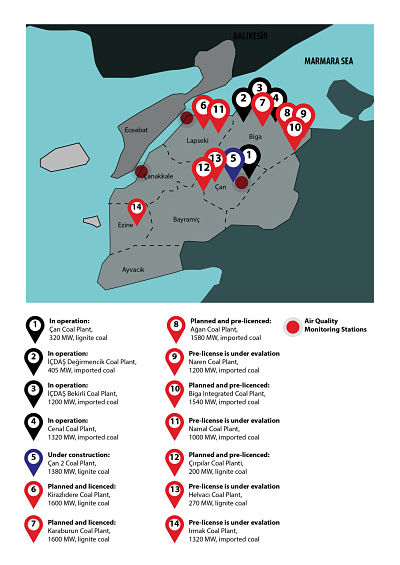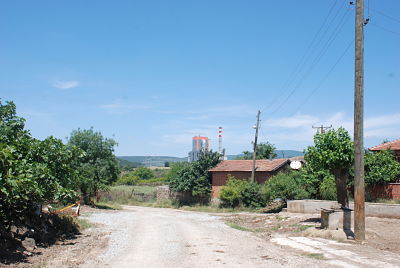Yesterday, MEPs held the confirmation hearing with Commissioner-designate Roswall, whose portfolio focuses on environment, water resilience and a competitive circular economy.
Brussels – The city of Canakkale in Turkey is not only famous with its Galipoli and Troia wars, it is unfortunately also a coal and health hotspot in the country. In Canakkale city, currently four coal power plants with the installed capacity of 3,245 MW are operating, and a fifth one with a 330 MW capacity is scheduled to start operating later this month. HEAL along with the Turkish Clean Air Right Platform recently visited the Provincial Directorate of Health and the Provincial Directorate of Environment and Urbanisation in Canakkale to request continuous evaluations of these coal power plants for their air pollution and public health impacts. Moreover, on World Environment Day 2018, HEAL initiated a press release together with the Canakkale Chamber of Medicines and the Turkish Clean Air Right Platform, that brings together seventeen national health and environmental NGOs [1]. Air Pollution is the biggest environmental risk for Canakkale City Air pollution is responsible for 32,000 premature deaths every year in Turkey according to WHO statistics; and coal-based energy production is an important source of air pollutants. The Turkish Ministry of Environment and Urbanisation which is responsible for the permitting and monitoring of the coal power plants stated “air pollution is the biggest environmental risk for Canakkale city” in its national report dated in 2016 [2]. The Biga district in Canakkale hosts three of these coal power plants based on imported hard coal, and the Can district hosts two coal power plants (one of them is scheduled to start operating in June 2018) running on lignite, which is mined in the same area. Associate Professor Haluk Çalışır from Turkish Thoracic Society states that “The fundamental principle of the medical mission is protecting human health which means tackling the causes of the ilness before it occurs. The protection of human health and the reduction of the health burden in Canakkale city is only possible by controlling the use of coal for heating purposes and by ending the new coal-fired power plant projects in Çanakkale”. Lignite coal is prohibited for domestic heating and personal consumption Canakkale Directorate of Environment and Urbanisation stated several times that lignite coal mined in the Can district contains high levels of dust and sulphur which contributes to health harming levels of PM10 and SO2. A previous report published by HEAL [3], underlines the high emission of PM10 and SO2 in the Can district exceed both Turkey and EU air quality limits. Moerover, “Clean Air Plan” report prepared by Canakkale Directorate of Environment and Urbanisation in November 2017 [4], prohibited domestic use and sales of lignite coal mined in Can district by Turkish Coal Enterprises to prevent air pollution. HEAL’s Turkey representative Funda Gacal stated that: “All types of coal including lignite cause health harming air pollution. The energy sector, a main consumer of coal, should not be ignored when coal use for personal purposes in a city is being prohibited.” HEAL’s Further Work to Support Health Experts to Stop Coal Power Plants: HEAL’s expert report in Turkish investigating the Environmental Impact Assesment report of planned Agan Coal Power Plant in Eskisehir from health and air pollution aspects on 12th October can be found online [6]. The report is planned to be used in legal steps and communications to prevent the new coal power plant.
Photo: Map of coal Power Plants in Canakkale, HEAL, February 2018
Photo: The new Can-2 Coal Power Plant based on lignite coal, that is scheduled to start operating in June 2018.


